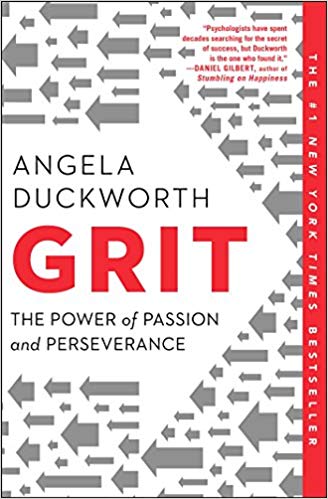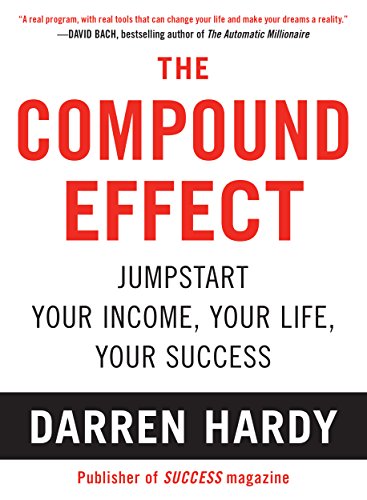

This article gives you a glimpse of what you can learn with Shortform. Shortform has the world’s best guides to 1000+ nonfiction books, plus other resources to help you accelerate your learning.
Want to learn faster and get smarter? Sign up for a free trial here .
Why is consistency important? How can you keep showing up for your goals when the going gets tough?
The key to success in anything in life is harnessing the power of consistency. However, doing what needs to be done on a consistent basis remains a stumbling block for many people trying to achieve their goals.
Keep reading to learn about the importance of consistency in achieving your goals.
Consistency Overrides Hard Work
In Grit: The Power of Passion and Perseverance, Angela Duckworth argues that hard work by itself won’t produce success unless it’s coupled with consistency. If you repeatedly choose new goals that have nothing to do with one another, you won’t reach a significant level of achievement even if you’re working very hard.
For example, you can devote 80 hours a week toward writing a novel, but if you abandon it after six months before it’s finished and instead start devoting 80 hours a week toward learning the trumpet, but then again abandon that goal six months later, you’ll never be accomplished even though you’ve worked very hard along the way.
Duckworth claims that it is consistency that differentiates grit from mere effort. Grit is about returning to your project each day, consistently, over a long period. She therefore argues that high-level performance is surprisingly unremarkable—it’s a combination of small activities that have been drilled into habit after repeated, consistent effort.
| The importance of consistency cannot be underestimated, but when taken to an extreme, it can hinder success rather than help it. If you operate under the unwavering mindset of “I can accomplish anything I set out to,” you might end up pursuing a goal that would be better abandoned. For example, you might spend years developing a product that has fatal flaws that will prevent it from becoming a runaway success. You would be better off honestly assessing your situation and picking a new goal, rather than continuing to try to make your flawed product work. |
The High Price of Inconsistency
In The Compound Effect, Darren Hardy likens consistency to a hand-pumped well. Bringing the water up to the surface requires pumping the lever, which causes a suction effect to bring the water up through the spout. When we start a new program, it’s tempting to grab the “lever” and pump hard. But when no water (progress) immediately appears, we often give up. If we keep going, when a little water appears (small, visible changes), we might think, “Is that all there is?” If we are able to persist through this, soon a steady stream of water appears (tangible results); we no longer have to pump (maintain our habits, routines and rhythms) with so much effort, just with consistency.
But slacking off kills momentum. If we stop pumping the water lever, we’re back to square one and have to start the arduous process all over again. When you miss a few weeks at the gym, or stop sticking to your date-night routine with your spouse, you end up right where you started, with no momentum.
| Your Body’s Physical Response to a Lack of Consistency In The Talent Code, Daniel Coyle explores some of the physiological reasons behind the importance of consistency. He explains that the development of skills depends on the growth of myelin, the insulation around our neural circuits. When we repeatedly perform an action, myelin increases, strengthening the neural connection. But when we let our practice lapse, the myelin decreases, worsening the connection. Therefore, a lack of consistent effort doesn’t just pause our progress, but it also effectively pushes us backward—making us lose skills we’ve already mastered. This is true for anything from learning piano to making sales calls. Thus, Coyle argues that mental skills respond to practice in the same way physical skills do. If an athlete stops practicing, she’ll lose muscle mass in her legs and arms, making it more physically difficult for her to master her skill. Coyle says that her brain is also physically responding to a lack of practice, as myelin atrophies and makes it more difficult for her to succeed. |
Commit to Showing Up
According to Jeff Olson, the author of The Slight Edge, consistency is a matter of commitment: You must commit to showing up for your goals day in and day out. The more consistent you are with your efforts to achieve something, the more likely you are to achieve it. For instance, if you want strong arm muscles, you can’t just do one push-up. You have to commit to doing push-ups consistently.
How can you build consistency in your efforts to grow? Olson doesn’t elaborate; so, let’s explore the strategy of Jerry Seinfeld, one of the most consistently successful comedians of all time.
Seinfeld has always produced his work at a steady, productive rate. (He may not always produce his best work, but he is at least consistent in his output.) According to young comedians who’ve discussed consistency with Seinfeld, his strategy is simple: He writes every single day, and every day that he writes, he marks an “x” on the corresponding day on a calendar. Overall, he follows one rule: Don’t break the chain of productive days.
You can follow this strategy with any goal using the following steps:
- Make a list of the consistent actions you need to take to get closer to your goal.
- Buy a calendar and a red marker.
- Mark an “x” on every day you complete those actions.
- Don’t break the chain of marks.
| Surround Yourself With Reminders of Your Goals Another helpful tip to keep up consistency is to have small, frequent reminders of your optimal future in your immediate environment. This translates to more motivation and self-control, and therefore more consistency. Thus, it makes it easier to continue living your new lifestyle and prevents you from lapsing into your old patterns. A reminder could be a certain book that’s always on your nightstand or getting a tattoo related to a commitment you’ve made. |
Final Words
Achieving success is not about overhauling your whole life overnight. It’s about staying consistent. Consistency means doing things that make you better and bring you closer to your goals rather than choosing things that sidetrack you, for instance by providing instant gratification.
If you enjoyed our article about the importance of consistency, check out the following suggestions for further reading:
Do you struggle with bad habits? Do you try to create good habits that will bring positive changes to your life, but have trouble making them stick? In Atomic Habits, James Clear argues that adopting the right habits will drastically improve your life—but to do so, you must understand how habits work and how you can change yours.
Clear explains that implementing “atomic habits,” or small improvements in behavior, changes your life because behaviors compound—that is, they build on each other to create more and more changes. Performing one good behavior leads to another, then another—and soon, you’ve transformed your life.

Want to fast-track your learning? With Shortform, you’ll gain insights you won't find anywhere else .
Here's what you’ll get when you sign up for Shortform :
- Complicated ideas explained in simple and concise ways
- Smart analysis that connects what you’re reading to other key concepts
- Writing with zero fluff because we know how important your time is









